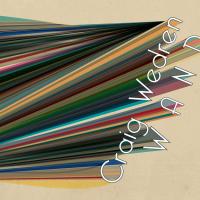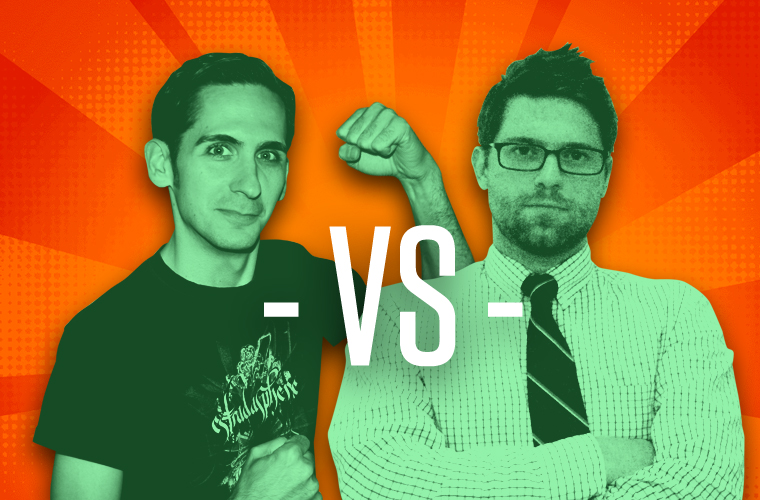Scott Morrow is ALARM’s music editor. Patrick Hajduch is a very important lawyer. Each week they debate the merits of a different album.
 Craig Wedren: Wand (Nerveland, 9/27/11)
Craig Wedren: Wand (Nerveland, 9/27/11)
Craig Wedren: “Are We”
[audio:https://alarm-magazine.com/wp-content/uploads/2011/09/Craig_Wedren_Are_We.mp3|titles=Craig Wedren: “Are We”]Morrow: In 1994, Shudder to Think scored a brief and unlikely radio hit with “X-French Tee Shirt,” a quirky rock anthem with a crescendo-building three-minute chorus/outro. Though the mathy post-hardcore four-piece had an established résumé, including a release on Dischord, a move to Epic Records gave it a chance at radio exposure, introducing impressionable alt-rock listeners to front-man Craig Wedren and his breathy, fiercely belted falsettos.
Since his time in Shudder to Think, Wedren has spent a lot of time writing themes for film and television, and he released a pair of solo albums (one entirely of ambient tracks) in the 2000s. Wand is “official” followup to the 2005 album Lapland.
Hajduch: On first listen, this really doesn’t deviate too far from the Shudder to Think playbook: rhythm-forward songs with vocals that seem to exist in parallel with the riffs instead of among them, somehow. Wedren’s voice lilts up and down while the techy songs shift and move to their own logic. This music isn’t as mathy/heavy as Shudder to Think’s, but the songwriting itself is relatively similar.
Morrow: I really don’t think that’s the case here. Of course, the songwriting bears a lot of similar characteristics as this is Wedren’s ship, but one of my favorite parts about the album is its diversity, both in sounds and structures. Where Wedren really shines, I believe, is in experimenting with structure within a pop context.
If Wedren’s vocals and idiosyncrasies didn’t tie this together, each track might sound like a different band, and there are all sorts of guitar intonations to go with bleating and ambient synths, fuzz bass, and murmuring classical guitar. Usually, I don’t like when vocal lines follow an instrument’s lead, but Wedren following the synth in “I Know” is one of those peculiar moments where he excels. Whether or not it annoys you, it’s something that isn’t heard very often in rock music — vocals following that type of melodic pattern.
Hajduch: That’s my point, just made in a different way. The way his vocals wrap around a track is uniquely “him,” and as a result, it has a similar sound, even as it’s created with a pretty radically different palette. I like how cues are taken from country and folk and wherever. The songs vary in terms of instrumentation but carry a similar “feel” due to the sensibility of the songwriting.
Morrow: That may be true, but he’s far from a vocal one-trick pony. Though many tracks go all croon-y and overdubbed, no two are the same otherwise. By the time the album gets to “Are We,” the second single (and 14th of 16 tracks), Wedren has made a total 180 from the rock tracks. The song begins with little more than vocal loops, hushed guitar chords, and a backing keyboard, but it builds to a beautiful minor-key climax with the aid of an Italian-western-tinged saxophone and a gurgling mass of sounds.
They’re using the phrase “dream punk” to describe this album, and that’s pretty accurate, but it’s really more like dream post-punk with a healthy dose of pop surrealism and sneaky depth. It’s a grower, so definitely give this a few listens before writing it off.
Hajduch: “Dream punk” makes me think of fuzzy rock like Weekend or No Age, not something as varied as this. We may disagree as to how much we like the results, but we agree that Wedren is no one-trick pony, and Wand isn’t comfortably slotted into a reductive subgenre.

